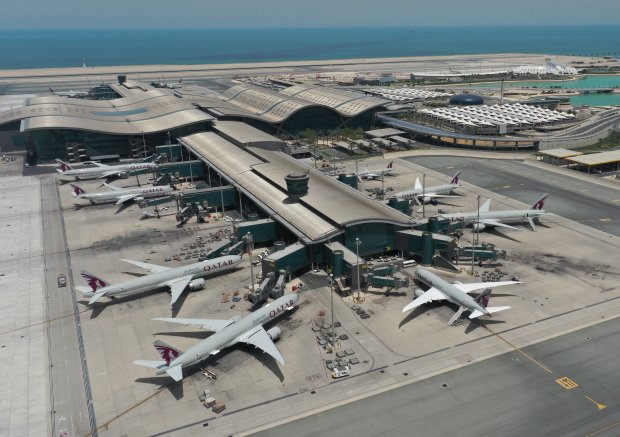Qatar has reopened its airspace after a temporary closure triggered by rising regional tensions and a missile attack by Iran on a U.S. military base near Doha. The move initially raised concerns about potential disruptions to flights from Nigeria, particularly those operated by Qatar Airways.
On Monday, Qatar’s Ministry of Foreign Affairs announced the immediate closure of the country’s airspace “to ensure the safety of residents and visitors,” as fears mounted over possible Iranian retaliation for recent U.S. strikes on nuclear facilities in Iran.
Shortly after the closure, Iran launched missiles at the al-Udeid Air Base in Qatar, which hosts over 8,000 U.S. troops and serves as the headquarters for U.S. Central Command air operations in the region. Fortunately, Qatari and U.S. officials confirmed that nearly all the missiles were intercepted and no casualties were reported.
The U.S. and UK embassies in Qatar had earlier advised their citizens to shelter in place, reflecting the high alert across the Gulf region. However, those advisories were lifted as tensions began to ease and operations resumed.
In the wake of the closure, concerns mounted in Nigeria’s travel sector. Bankole Bernard, Group Managing Director of Finchglow Holdings, warned that the shutdown could disrupt air travel between Nigeria and Qatar. “Qatar Airways operates daily flights to Lagos and Abuja and several weekly flights to Kano,” he said. “A lot of passenger traffic would be affected if this persists.”
As of early Tuesday, Qatar announced that normal air travel had resumed, easing immediate concerns about international flight disruptions. Nonetheless, the incident has highlighted the vulnerability of global aviation to geopolitical instability.
While Qatar’s foreign ministry maintained that the country’s internal security remains stable, authorities say they are monitoring developments closely and remain ready to take further safety measures if necessary.













